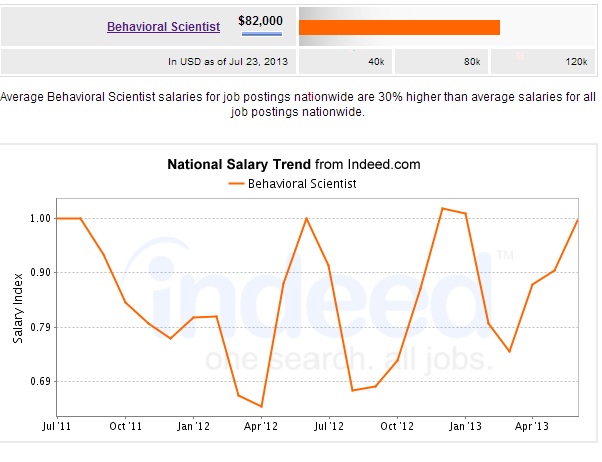Many countries today are placing a premium on upgrading the workforce of their public health system.

In the US, federal funding has been increased to pay for all types of public health preparedness, from natural disasters, to terrorism to pandemics. This means that will a degree in some aspect of public health, you can be in high demand as a behavioral health scientist.
A behavioral health scientist, or a health education scientist, helps to boost public health by encouraging citizens to make better health choices in their daily lives. For example, you could work on developing education initiatives for needy communities on many health topics, from nutrition, to fitness to disease prevention.
Behavioral Health Scientist Degree
To become a behavior health scientist, you will most likely need to have a bachelor’s degree in health education or health promotion. You will learn about the theories and types of health education.
To move higher in the field, you should expect to earn a master’s degree in public health eventually, or MPH. In your MPH program, you will spend much of your time learning about community health education, school health education and public health education.
Behavioral Health Scientist Job Description
As a behavioral health scientist, some of the efforts you may work on include:
-
Providing health education to needy communities and areas suffering from illness
-
Stopping the spread of HIV/AIDs through education
-
Helping young people avoid drug and alcohol abuse
-
Cutting down on obesity and health problems in children
-
Improving life quality for senior citizens
-
Saving lives by promoting the use of seatbelts
Behavioral Health Scientist Skills and Qualifications
-
Analytical skills
-
Instructional skills
-
People skills
-
Problem-solving skills
-
Writing and speaking skills
Behavioral Health Scientist Certifications
Some employers of behavioral health scientists and educators will only hire professionals who are Certified Health Education Specialists, or CHES, which is a certification by the National Commission for Health Education Credentialing.
Behavioral Health Scientist Salary

Graphic Data Source: Indeed.com
The Bureau of Labor Statistics states that the the median salary for health educators and behavioral health scientists is $45,800. That is a median wage, and the top 10% will earn more than $80,000 per year.
BLS notes that the following median salaries apply in the field based upon type of facility:
- Hospitals: $58,000
-
Government agencies: $48,000
-
Health care services: $41,000
-
Religious organizations: $40,000
-
Social assistance: $35,000
Other sources state that the median wage for behavioral scientists is $61,000.
Behavioral Health Scientist Employment Outlook
The career field for behavior health scientists and educators is very strong, with the field expected to grow by an impressive 37% in the next 10 years. It is expected that the field of health education will see growth the most in these areas:
-
Civic, professional and religious organizations: 60%
-
Social assistance: 60%
-
Health care: 38%
-
Educational services: 36%
-
Government organizations: 9%
Other sources indicate that the field of behavioral health science will see a growth rate of up to 19% by 2020, which is faster than average.
Associations
-
American Association for Health Education: This is the largest association of professionals who work in physical and health education in the US.
-
Health Care Education Association: This is a diverse organization of health care and behavioral health educators that creates many resources for the field.
-
Association for Contextual Behavioral Science: This organization is dedicated to the advancement of behavioral science to alleviate suffering and to promote public health.
-
The Association for Advanced Training in the Behavioral Sciences: This leading organization seeks to advance and enhance the skills of many types of mental health professionals, via health education.
Additional Resources
-
Science Daily – This resource gives you news on all of the latest updates in the field of behavioral science.
-
UC Berkeley Extension – A good source of information on behavioral science, as well as various professional certifications that are available.
-
NIH Health Education Programs – Important health education and communication programs funded by NIH.
-
Health Education and Behavior – Peer reviewed journal that publishes empirical research, program evaluations and case studies in the field.
-
Society for Public Health Education – An independent, professional association that has a membership of 4000 health education professionals and students.
YouTube Video Resources
Additional Videos







